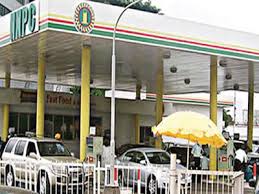Amid growing concerns about the immediate negative implications of the fuel subsidy removal for poor Nigerians, the Depot and Petroleum Products Marketers Association of Nigeria (DAPPMAN), has lent its support for the fiscal measure and full-scale deregulation of the downstream sector to enhance economic growth and development of the nation.
The government, through the Petroleum Products Pricing Regulatory Agency (PPPRA), has since March this year commenced the gradual deregulation of the downstream sector products’ pricing, with the introduction of a price modulation policy where international product prices and associated landing costs in Nigeria are used as input in the determination of final pricing to the local market.
A few days ago, the PPPRA adjusted the fuel (petrol) depot price to N151.56/litre.
Reacting to the latest measures by the government, DAPPMAN Chairman, Mrs. Winifred Akpani, said the association fully supported the implementation of a fully deregulated downstream sector in order to enhance transparency, competitiveness and sustainable growth in it.
She said: “DAPPMAN is mindful of the commitment of the government and the functional organs managing the sector to ensuring value to every Nigerian and we salute them for this as we are indeed up against uncertain times.
“However, we believe that full deregulation of the sector remains the most viable option for Nigeria to effectively navigate this period and ultimately safeguard the future of our economy and well-being of 200 million Nigerians”, the DAPPMAN boss added.
Elaborating on the benefits of a fully deregulated downstream sector to the economy, the leading player explained that deregulation would open up the sector for fresh investments, market deepening, diversification and growth, thereby resulting in uninterrupted demand and supply regime and saving government wastages associated with the current regulated era.
The DAPPMAN chieftain clarified: “DAPPMAN is aware of the considerations that have dogged the issue of deregulation over the years and we believe they are very important. However, we believe these considerations will be duly addressed with a deregulation regime that guarantees long-term benefits and empowers the government to commit savings made in the process to infrastructure development, job creation, agricultural revolution, education and health.
“This will spur growth of Small and Medium scale Enterprises (SMEs) as well as large corporates, that would increase Nigeria’s human capacity index, competitiveness and ultimately drive inflow of foreign investments”, Mrs. Akpani added.






